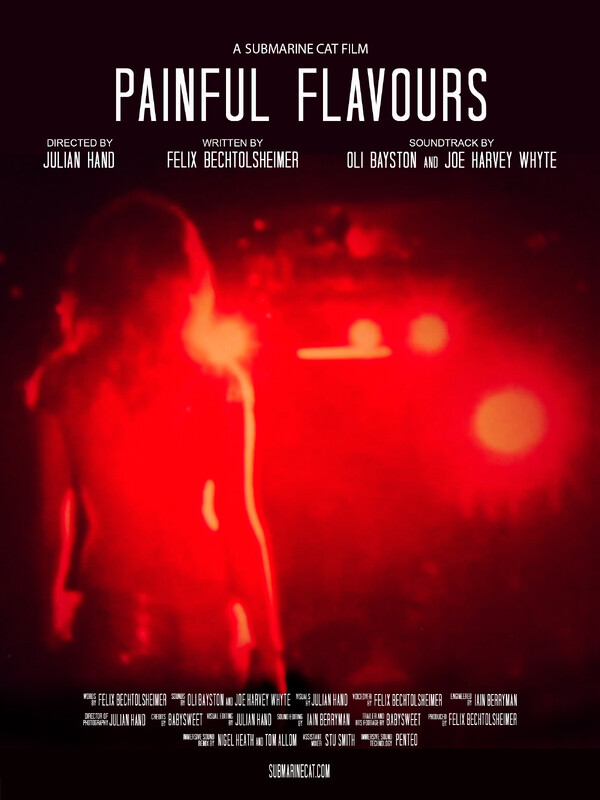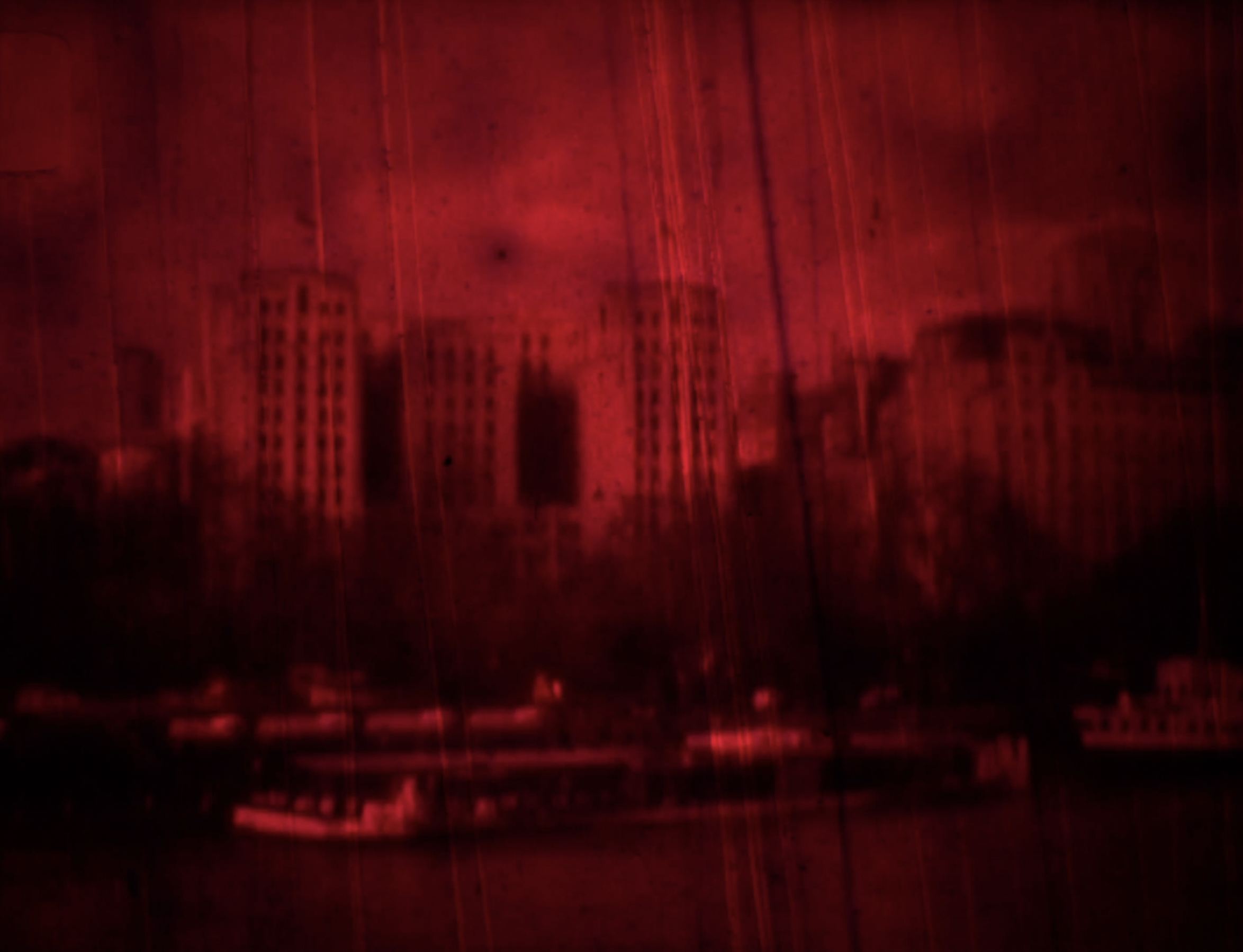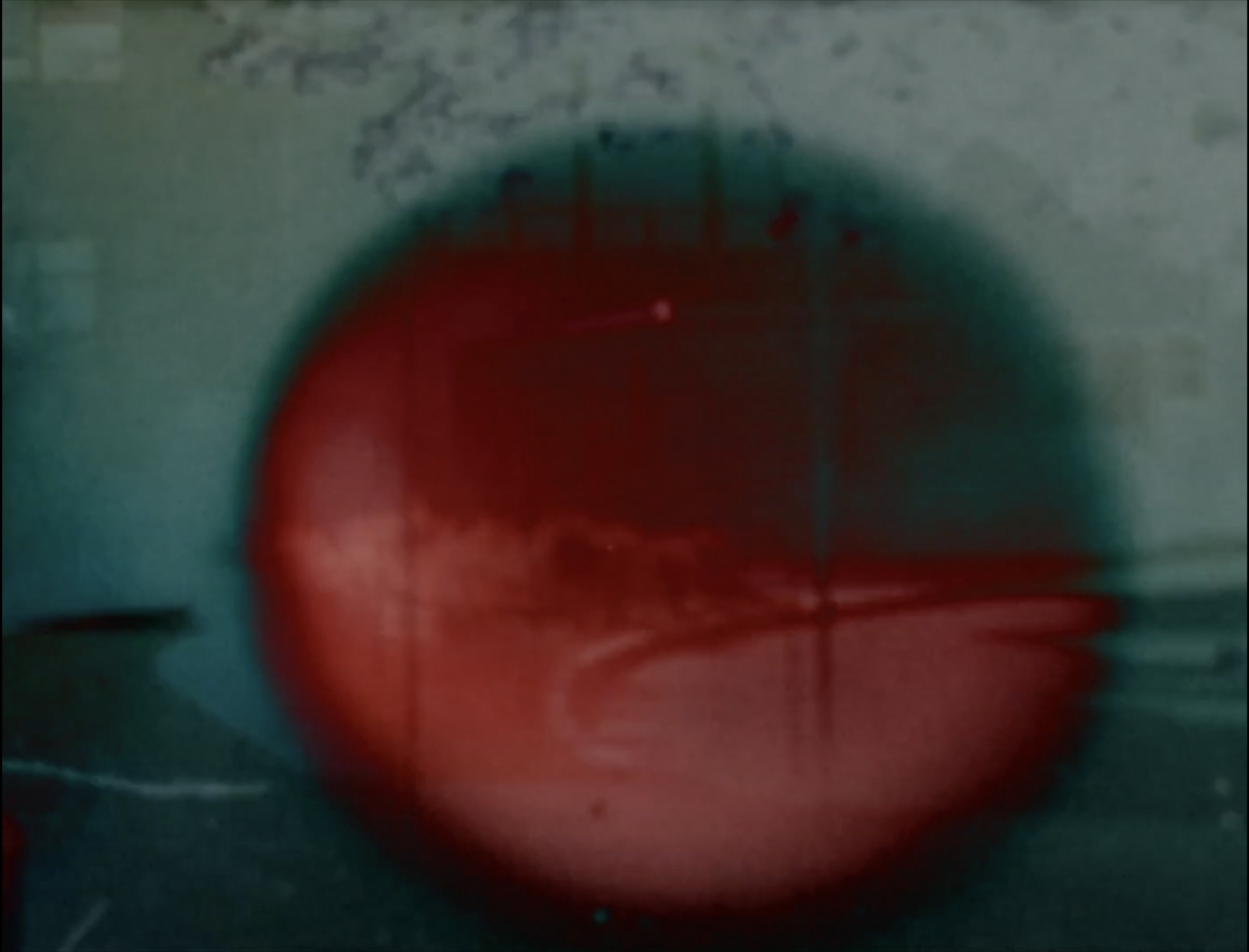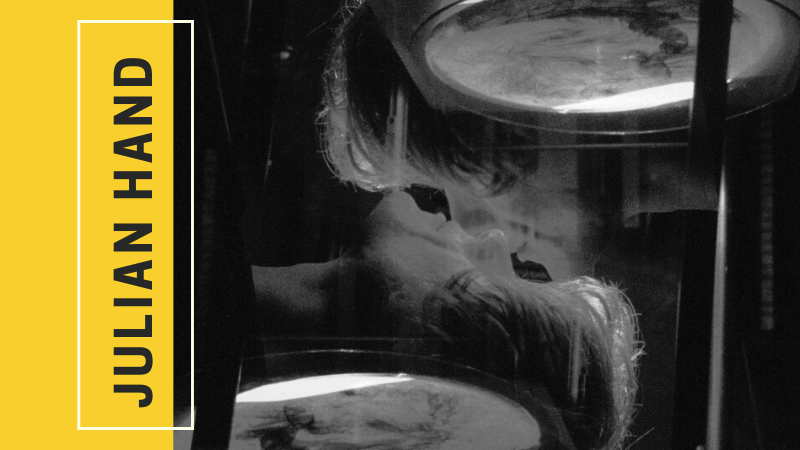Julian Hand
Interview with Julian Hand, Director of experimental short ‘Painful Flavours’
Your project takes a part in our festival. What is your project about?
The project ‘Painful Flavours’ is an audio-visual collaboration between myself, writer Felix Bechtolsheimer and musicians Oli Bayston and Joe Harvey Whyte. Felix approached me to provide an experimental visual accompaniment to his poem, Painful Flavours, a reflective poetic account of his past set to an ambient soundtrack by Oli and Joe. The film takes the form of a filmic waking dream or reverie where memory and the present moment collide as the world flickers by from a moving window.
Your project takes a part in our festival. What is your project about?
The project ‘Painful Flavours’ is an audio-visual collaboration between myself, writer Felix Bechtolsheimer and musicians Oli Bayston and Joe Harvey Whyte. Felix approached me to provide an experimental visual accompaniment to his poem, Painful Flavours, a reflective poetic account of his past set to an ambient soundtrack by Oli and Joe. The film takes the form of a filmic waking dream or reverie where memory and the present moment collide as the world flickers by from a moving window.

What were your requirements for actors to take a part of your film?
From the off-set of the project, we decided against using actors to portray characters depicted in the poem. We wanted to keep the visual element abstract only aligning with the poem words at certain key points.
How did you communicate with the cameraman?
I usually work alone when filming for this type of project. I tend to journey out to places alone with my camera. I shoot on a Bran Nizo Professional Super 8mm camera, it is lightweight and compact. A good choice for the lone cameraman in the wilderness. The project is a mixture of footage shot specifically for this project, personal footage from my Super 8mm archives and stock footage from my personal archives. It is a blend of footage from various sources.
What locations did you choose for your project? And why?
The footage shot specifically for the project consists of urban landscapes in and around the city of London. This footage I filmed myself, journeying out to the edge lands of the city with my camera in search of areas that would fit the tone of the poem and accompanying soundtrack. Much of the footage used in the video was shot along the Thames Estuary, composed of industrial landscapes and urban edge lands. Solemn lonely and bleak zones on the outskirts of the city, places to reflect on life, inwards and outwards, a pantheon for the poetic confessions whispered in Felix’s Painful Flavours.
Why should distributors buy your film?
This film is a work of art an experimental audio-visual trip like nothing else. Flickering slow cinema wrapped in dark filmic psychedelia. What distributor would pass that up?


What expression elements did you use in your project? How would you characterize your work?
I often use analogue film for its aesthetic and expressive possibilities. I work in what I consider a hybrid fashion, combining photo-chemical film and digital processes, usually electing to finish my films in a digital format. My process is a marriage between analogue and digital technologies. I am occupied with the portrayal of liminal zones: places overlooked, abandoned or forgotten. As mentioned, this film is composed of multiple sources of film, when editing I employed in part, the cut-up technique, an aleatory literary technique in which a written text is cut up and rearranged to create a new text. Instead of text I cut up and rearranged the different sources of footage. The concept can be traced to the Dadaists of the 1920s, but it was developed and popularized in the 1950s and early 1960s, especially by writer William S. Burroughs.
At what festivals have you had success? Has the film already premiered? If so, where?
So far we have had luck at the following film festivals:
IndieX Film Fest - Honourable Mention for Best Experimental Short
IndieX Film Fest - Best Sound Design
Independent Shorts Awards - Best Experimental Short
Independent Shorts Awards - Honourable Mention for best Production Design
London Independent Film Awards - Best Experimental Short
Rome Prisma Film Awards - Best Experimental Film
Berlin Indie Film Festival - Best Experimental Film
Latitude Film Awards - Best Experimental Short
Latitude Film Awards - Best Original Score
Los Angeles Film Awards (LAFA) - Honourable Mention for Best Score
Top Shorts Film Festival - Finalist Best Experimental Film
Feel The Reel International Film Festival - Nominee Best Experimental Short
Hollywood Shortfest - Official Selection
Experimental, Dance & Music Festival- Best Long Form Short
What motivated you to become a filmmaker?
Since an early age, I have sought to explore filmmaking from an experimental perspective, using old cameras and filmmaking techniques to portray the world around me. I started with photography and found filmmaking to be a natural progression. Especially when collaborating with musicians. Time-based media, be that film, lightship or installation has become my domain for artistic expression.
Which movies are your favorites? And why?
I have too many ‘favourite’ films, the list is pretty expansive. So, I will name one with specific relevance or influence to this project. The film is by William Raban and is titled Thames Film. Thames Film is a documentary drawn from footage of a small boat's voyage from London to Dover, as well as archive video, stills, engravings and recurring paintings such as Bruegel The Elder's Triumph Of Death. It is a meditation on the death, time, and transience of the Thames River.
What genre do you like to shoot and why?
Analogue photography and moving image appeal to my sense of aesthetic and cultural/historical reference with regard to the artists, photographers and filmmakers who have been an inspiration to me. I’m drawn to the medium for its painted picture-postcard colours, hues and tones, its grain and its ability to conjure the feeling of looking into the past through the mind's memory eye. There are so many distinct visual characteristics to analogue film, some of which have been mentioned above.
I like the planning and the sense of achievement through technical skill, and the wait involved in seeing the results. I feel these elements exist only in the analogue world and cannot be matched by the instant digital approach.
Likewise, if you wish your outcome to be super high resolution with crystal clear clarity in the flash of a second then you would not pick up a Super 8mm camera. It’s this distinct feel and process that I have always been drawn to, and has become a hallmark of my work as a filmmaker.
What do you do if you're not thinking about a movie? What are your hobbies?
In my spare time, I walk and cycle, always looking for new locations for filming or simply a place to think. I relish being outdoors, exploring different areas of the city further afield.
What projects do you plan to shoot in the future?
I’m dreaming up a trip over to Brittany and the stone astronomical alignments of Carnac for filming adventure. An experimental Audio Visual document of this incredible, mystical, ancient place will be a follow-up film to my recent release, Callanish AVR.

